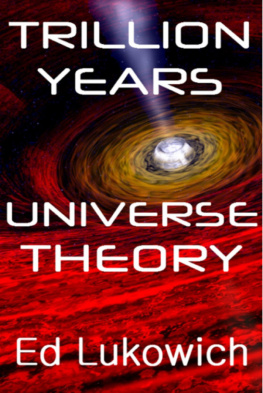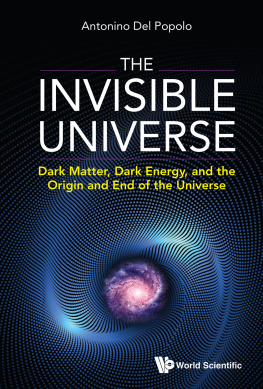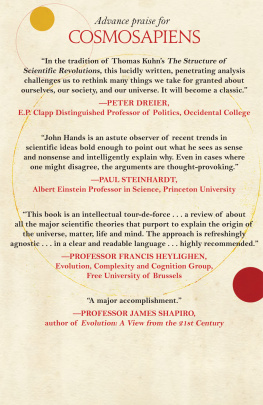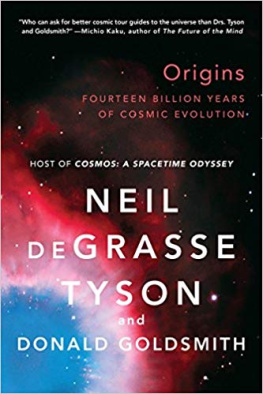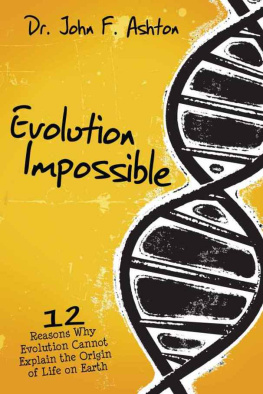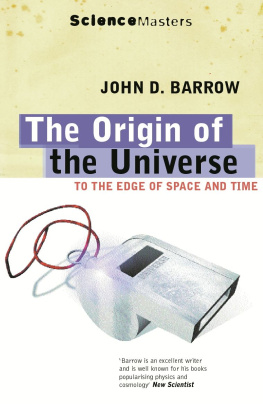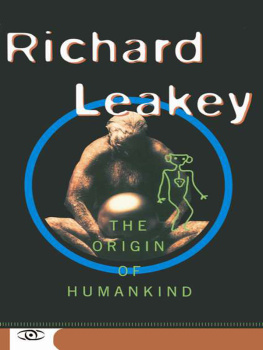Advance Reviews
Handss book is a game-changer. In the tradition of Thomas Kuhns The Structure of Scientific Revolutions, this lucidly written, penetrating analysis challenges us to rethink many things we take for granted about ourselves, our society, and our universe. It will become a classic.
PETER DREIER, E P Clapp Distinguished Professor of Politics, Occidental College
John Hands has attempted a remarkable thing: nothing less than an exhaustive account of the current state of scientific knowledge about the origins and evolution of the cosmos, life and humanity. His driving questions are those that have inspired all of science, religion and philosophy: What are we? Where do we come from? What is the source of consciousness, value and meaning? Hands painstakingly summarises the current state of knowledge in a huge variety of fields, from cosmology to evolutionary psychology, in enviably lucid prose. His conclusions are measured and sceptical, and his conception of the limits of science is well-argued: he gives an extremely clear view of what science has established, what it has not established, and what it never will. This is a truly exceptional piece of work.
TIM CRANE, Knightbridge Professor of Philosophy, University of Cambridge
John Hands is an astute observer of recent trends in scientific ideas bold enough to point out what he sees as sense and nonsense and intelligently explain why. Even in cases where one might disagree, the arguments are thought-provoking.
PAUL STEINHARDT, Albert Einstein Professor in Science, Princeton University
There have been numerous books seeking to tell a tale that opens with the beginning of our universe and, after a long, dry journey, concludes with the ultimate event: the emergence of our species, Homo sapiens. None has done this better, more clearly, and with greater thought and documentation than John Hands. But he goes on to conclude that, uniquely as far as we know, we are the unfinished product of an accelerating cosmic evolutionary process and the self-reflective agents of our future evolution. A work as bold, broad, and challenging as this will no doubt tweak the bias any one of us may have regarding a particular event, but, then, so did Darwins On the Origin of Species.
JEFFREY SCHWARTZ, Professor of Physical Anthropology and of The History & Philosophy of Science at the University of Pittsburgh
A magisterial, persuasive and thought provoking survey of the horizons of modern science.
DR JAMES LE FANU, author of The Rise and Fall of Modern Medicine
This book is an intellectual tour-de-force: a review of about all the major scientific theories that purport to explain the origins of the universe, matter, life and mind. The approach is refreshingly agnostic, as the author systematically points out how much we still dont know and perhaps never will know. He critically dissects the relevant observations, theories and hypotheses, both mainstream and alternative, pointing our both their strengths, andalas much more numerousweaknesses. As such, he provides a welcome counterpoint to the sensationalism that typically accompanies the latest discoveries in fields such as cosmology, genetics or string theory, discoveries that are most often outdated within a couple of years as new data or interpretations come in. Yet, in spite of this skeptical stance, he genuinely attempts to synthesize the cumulative results, following the emergence of humanity from the Big Bang (which may never have happened) via the formation of matter in stars and the origin of life on Earth to the development of consciousness and culture. Moreover, he manages to explain all these intrinsically very difficult concepts and theories in a clear and readable language, without falling into the common style of popularization that substitutes anecdotes and human interest for scientific reasoning. The book is highly recommended for anyone wishing to get a deeper insight into the fundamental but typically arcane theories that purport to explain where we and the universe that surrounds us are coming from.
PROFESSOR FRANCIS HEYLIGHEN, Evolution, Complexity and Cognition Group, Free University of Brussels
It often takes an outsider to see the limitations of conventional science. As far as biological evolution is concerned, John Hands has done a remarkable job of disentangling the many topics that are long overdue for reinterpretation. The enormous effort he has made to cover so many evolutionary questions is heroic. That is the first step to making progress. A major accomplishment.
PROFESSOR JAMES SHAPIRO, author of Evolution: A View From The 21st Century
An audacious and admirable book. John Hands tackles the major questions of science ranging from the origin of the universe to the evolution of humans. The book is written with engaging style, and the strongest scientific ideas across a swathe of fields in physics and biology are presented lucidly.
LARRY STEINMAN, Professor of Neurological Sciences, Stanford University
With depth and virtuosity, John Hands explores the Big Questions of human existence: who are we? why are we here? where are we headed? This is a vital work of science fact which deserves attention. Handss voyage of inquiry will not only educate you, it will also surprise.
DEREK SHEARER, Director, McKinnon Center for Global Affairs, Los Angeles
An encyclopaedic account of the evolution of humans, from the origin of the universe onwards Any conventional Darwinist (and I am one of them) will find a lot to take exception to: but disagreement is the fuel of progress and if you enjoy an argument this is the book for you.
PROFESSOR STEVE JONES, author of The Language of the Genes
A fine book brave, very wide ranging, synoptic. It will interest many readers because of its comprehensive set of interwoven topics, life, consciousness, evolution of the biosphere including a cogent critique of the NeoDarwinian Synthesis, of the human, and beyond.
PROFESSOR STUART KAUFFMAN, author of At Home in the Universe
John Hands came looking to science for the big picture: what can it tell us about who we are? He has learned a great deal of cosmology and evolutionary biology, and emerged as what we might call a scientific critic in the tradition of Victorian sages like William Whewell.His clear, careful and critical exposition of cosmological speculations reveals the gulf between them and the ideal of scientific theories developed mathematically, tested, and confirmed by observation and experiment. All interesting theories have to have loose ends and gaps, but these fall far short: and moreover Hands finds in them and their proponents evidence of the tunnel vision that comes with narrow specialisation, intense competition for patronage and limited funds, and a dogmatism that recalls the Inquisition.But when we reach the frontier of the unknown there is no place for entrenched views. Joseph Priestley wrote of science that the bigger the circle of light, the bigger the circumference of darkness; and Hands came to realise, and makes us realise, how much we dont know. Nevertheless, he is optimistic, and when he comes to human evolution and a schematic view of our history, he is hopeful and sees progress in understanding and co-operation. From his book we get that big picture he sought.
PROFESSOR DAVID KNIGHT, author of The Making of Modern Science
COSMOSAPIENS
Also by John Hands
Non-fiction
Housing Co-operatives
Novels
Perestroika Christi
Darkness at Dawn
Brutal Fantasies
COSMOSAPIENS
Human Evolution from the Origin of the Universe
JOHN HANDS

Next page

